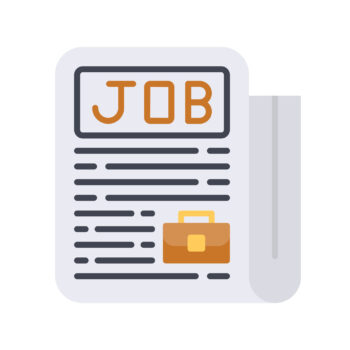Clearly defined roles and responsibilities are the backbone of a well-organized office. Whether you’re hiring for a new position or refining existing roles, having concise job descriptions helps ensure that every team member knows what’s expected of them. This clarity fosters better communication, improved efficiency, and a stronger sense of accountability.
- Administrative Assistant
- Summary: The Administrative Assistant provides general office support with a variety of clerical activities and related tasks. This role is responsible for answering incoming calls, directing calls to appropriate associates, mail distribution, and requisition of supplies as well as additional clerical duties.
- Key Responsibilities:
- Answer and direct phone calls.
- Organize and schedule meetings and appointments.
- Maintain contact lists and produce reports, presentations, and briefs.
- Assist in the preparation of regularly scheduled reports.
- Order office supplies and manage inventory.
- Receptionist
- Summary: The Receptionist serves as the first point of contact for clients and visitors. This role is responsible for managing the front desk, handling inquiries, and directing visitors to appropriate personnel.
- Key Responsibilities:
- Greet and welcome guests as soon as they arrive at the office.
- Direct visitors to the appropriate person and office.
- Answer, screen, and forward incoming phone calls.
- Ensure reception area is tidy and presentable, with all necessary stationery and material.
- Provide basic and accurate information in person and via phone/email.
- Office Administrator
- Summary: The Office Administrator ensures the smooth running of an office on a day-to-day basis and may manage a team of administrative or support staff.
- Key Responsibilities:
- Coordinate office activities and operations to secure efficiency and compliance to company policies.
- Supervise administrative staff and divide responsibilities to ensure performance.
- Manage agendas/travel arrangements/appointments for upper management.
- Support budgeting and bookkeeping procedures.
- Track stocks of office supplies and place orders when necessary.
- Executive Assistant
- Summary: The Executive Assistant provides high-level administrative support to executives, including managing schedules, handling correspondence, and overseeing special projects.
- Key Responsibilities:
- Manage the executive’s schedule, including scheduling meetings, appointments, and travel arrangements.
- Handle all correspondence, including screening phone calls, emails, and other communications.
- Prepare and edit reports, presentations, and other documents.
- Coordinate and organize executive meetings, including preparing agendas and taking minutes.
- Handle sensitive and confidential information with discretion.
- Office Manager
- Summary: The Office Manager is responsible for overseeing the administrative activities that facilitate the smooth running of an office. This role includes managing office supplies, staff schedules, and other operational tasks.
- Key Responsibilities:
- Organize and supervise all of the administrative activities that facilitate the smooth running of an office.
- Maintain office services by organizing office operations and procedures, preparing payroll, controlling correspondence, designing filing systems, and overseeing clerical functions.
- Manage office budget, ensuring effective cost control.
- Oversee staff performance and provide support where needed.
- Develop and implement office policies and procedures.
- Human Resources Assistant
- Summary: The Human Resources Assistant provides administrative support to the HR department, including record-keeping, file maintenance, and HRIS entry.
- Key Responsibilities:
- Assist with day-to-day operations of the HR functions and duties.
- Provide clerical and administrative support to Human Resources executives.
- Compile and update employee records (hard and soft copies).
- Process documentation and prepare reports relating to personnel activities.
- Coordinate HR projects, meetings, and training seminars.
- Facilities Coordinator
- Summary: The Facilities Coordinator is responsible for managing and maintaining the office’s physical space, including ensuring a safe and functional work environment.
- Key Responsibilities:
- Manage building maintenance activities and coordinate with external service providers.
- Ensure that office spaces meet health and safety standards.
- Monitor and manage office equipment and furniture, coordinating repairs and replacements as necessary.
- Assist in space planning and office moves.
- Oversee janitorial services and manage cleaning schedules.
- Data Entry Clerk
- Summary: The Data Entry Clerk is responsible for inputting, updating, and maintaining accurate records in the company’s database or computer systems.
- Key Responsibilities:
- Input data from various sources into the company database.
- Verify and update data before entering it into the system.
- Retrieve data as requested and prepare reports based on this data.
- Maintain accurate records and logs of activities.
- Ensure data confidentiality and security.
- Customer Service Representative
- Summary: The Customer Service Representative interacts with customers to provide information in response to inquiries about products and services, and to handle and resolve complaints.
- Key Responsibilities:
- Answer customer inquiries by phone, email, or chat in a timely and professional manner.
- Provide information about products and services.
- Process orders, forms, and requests.
- Resolve product or service problems by clarifying the customer’s complaint.
- Maintain customer records by updating account information.
- IT Support Specialist
- Summary: The IT Support Specialist is responsible for providing technical support and troubleshooting services to end-users who need assistance with their computer hardware or software.
- Key Responsibilities:
- Provide technical assistance and support for incoming queries and issues related to computer systems, software, and hardware.
- Install, modify, and repair computer hardware and software.
- Resolve technical problems with Local Area Networks (LAN), Wide Area Networks (WAN), and other systems.
- Maintain daily performance of computer systems.
- Respond to email messages for customers seeking help.
These sample job descriptions can serve as templates for defining roles and responsibilities within an office, ensuring clarity and efficiency in operations.
